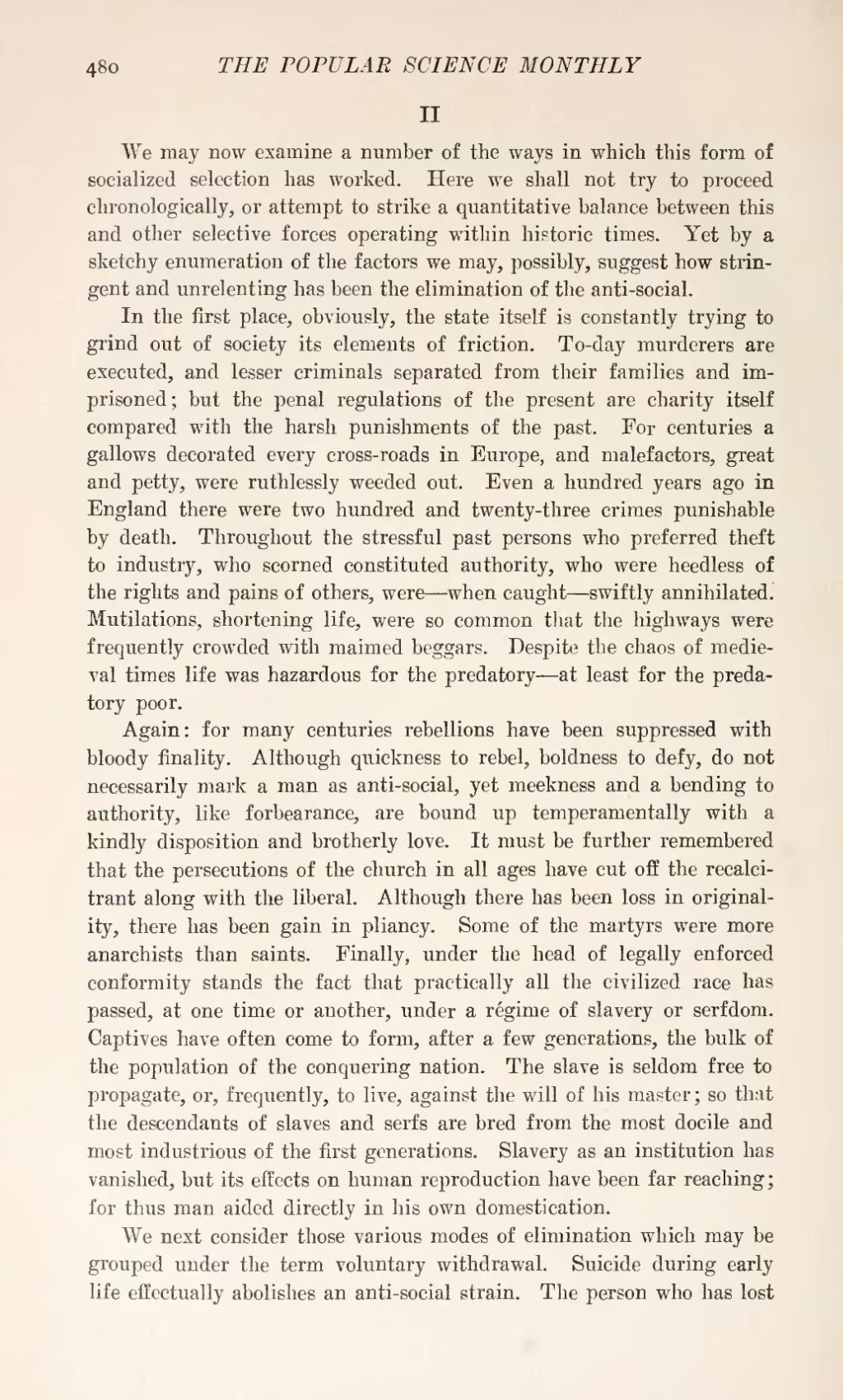II
We may now examine a number of the ways in which this form of socialized selection has worked. Here we shall not try to proceed chronologically, or attempt to strike a quantitative balance between this and other selective forces operating within historic times. Yet by a sketchy enumeration of the factors we may, possibly, suggest how stringent and unrelenting has been the elimination of the anti-social.
In the first place, obviously, the state itself is constantly trying to grind out of society its elements of friction. To-day murderers are executed, and lesser criminals separated from their families and imprisoned; but the penal regulations of the present are charity itself compared with the harsh punishments of the past. For centuries a gallows decorated every cross-roads in Europe, and malefactors, great and petty, were ruthlessly weeded out. Even a hundred years ago in England there were two hundred and twenty-three crimes punishable by death. Throughout the stressful past persons who preferred theft to industry, who scorned constituted authority, who were heedless of the rights and pains of others, were—when caught—swiftly annihilated. Mutilations, shortening life, were so common that the highways were frequently crowded with maimed beggars. Despite tbe chaos of medieval times life was hazardous for the predatory—at least for the predatory poor.
Again: for many centuries rebellions have been suppressed with bloody finality. Although quickness to rebel, boldness to defy, do not necessarily mark a man as anti-social, yet meekness and a bending to authority, like forbearance, are bound up temperamentally with a kindly disposition and brotherly love. It must be further remembered that the persecutions of the church in all ages have cut off the recalcitrant along with the liberal. Although there has been loss in originality, there has been gain in pliancy. Some of the martyrs were more anarchists than saints. Finally, under the head of legally enforced conformity stands the fact that practically all the civilized race has passed, at one time or another, under a regime of slavery or serfdom. Captives have often come to form, after a few generations, the bulk of the population of the conquering nation. The slave is seldom free to propagate, or, frequently, to live, against the will of his master; so that the descendants of slaves and serfs are bred from the most docile and most industrious of the first generations. Slavery as an institution has vanished, but its effects on human reproduction have been far reaching; for thus man aided directly in his own domestication.
We next consider those various modes of elimination which may be grouped under the term voluntary withdrawal. Suicide during early life effectually abolishes an anti-social strain. The person who has lost
